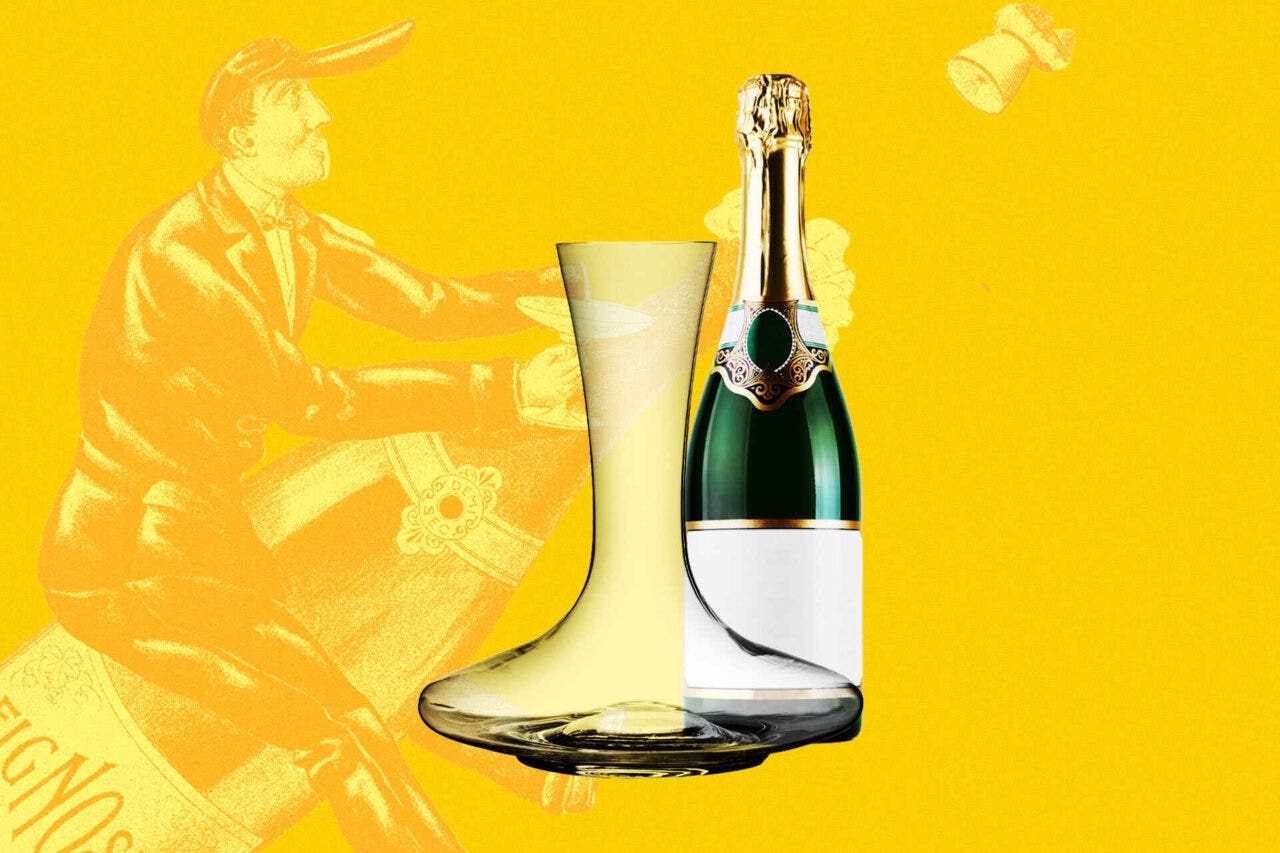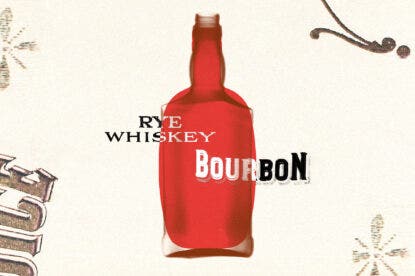Decanting is a polarizing topic in the still-wine world. The process is performed to separate sediment, allow the wine to interact with oxygen or both. But when it comes to decanting Champagne, you can bet experts have opinions on the matter. And whether to decant the bubbly or not isn’t always clear.
While many producers, winemakers and sommeliers will tell you they never decant Champagne—among them French winemakers Jérôme Prévost, owner of La Closerie, and Clémence Bertrand, winemaker of Bertrand-Delespierre—there is a push for the practice among a niche group in the industry.
For instance, Florent Nys, chief winemaker at Billecart-Salmon recommends decanting “some vintage Champagne or those which have a certain vinosity.” Benoit Déhu, owner of Champagne Déhu, shares that he decants his bottles when he is at lunch or dinner with friends. And Cédric Bouchard, owner of Roses de Jeanne, has previously advocated for decanting his wines one to two hours before serving.
“Decanting Champagne can create a kind of blossoming of the aromas and soften the bubbles,” says Nys. “[It] can reveal some aspect of oak barrels vinification or long aging on lees as well.”
One thing all parties can agree on, however, is that decanting is situational: There are certain times when it should be done, and times when it shouldn’t. And as with any wine, a matter of personal preference plays a role, too.
The Dos and Dont’s of Decanting Champagne
Contrary to what you might think… you actually can decant Champagne. Here’s how, using our top-selling Art Series Treble Decanter.
Why Should You Decant Champagne?
Decanting provides time for the wine to develop naturally after being locked up in a bottle. This is especially important with sparkling wine, as bubbles can become aggressive upon disgorging the cork and cage, which will overpower the secondary and vinification aromas, explains Déhu.
When the Champagne spends time in a decanter, the bubbles have time to settle, thus becoming more refined.
“Carbon dioxide escapes, the acidity decreases and reveals the aromas of the wine and its aging on lees,” says Nys.
When Should You Decant Champagne?
Hugo Bensimon, sommelier at Grill 23 in Boston, recommends decanting “powerful vintages that have years left in their life.”
Vintages like 2002 and 2008, for example, are good decanting candidates as they can present “aggressive bubbles,” adds Thomas Calder, export agent for Roses de Jeanne, Marie Courtin, Thomas Perseval and Bereche.
Calder notes, too, that he normally decants Champagne if he’s drinking with a larger group.
For example, “with eight people, they will drink one glass and the bottle will be finished,” he says. “That might call for carafing to allow the Champagne to more fully express itself during the limited amount of time it will be drunk.” Whereas if only three people are sharing a bottle, the wine will have more time to naturally take on air.
How Do You Decant Champagne?
According to Calder, most sommeliers he knows will chill the carafe in the refrigerator for two to three hours so that it’s the same temperature of the Champagne being served.
“This is less violent to the bubbles than a carafe at room temperature where the difference between the temperature of the carafe and the Champagne will provoke an explosion of bubbles, and a resulting loss of effervescence,” says Calder.
If you’re going to decant, use a carafe with a “long, thin neck so that you can gently pour the Champagne down the side and not lose too much effervescence with a lot of splashing into the decanter,” says Déhu. Be sure to hold the bottle at a 45-degree angle.
Champagnes generally open more quickly than still wines. So, on average, it should be decanted no more than 15 to 30 minutes prior to serving.
When it comes to serving, most experts agreed you should delicately pour the decanted Champagne down the side of a universal or Burgundy glass.
“You want to allow the Champagne to express itself, which is not really possible in a [Champagne] flute,” says Déhu.
“Flutes were designed to show off the bubbles and their freshness, wine glasses help you understand the Champagne much better,” adds Bensimon. “Treat the bubbles like a bottle of Montrachet.”
When Shouldn’t You Decant Champagne?
But even Champagne-decanting advocates draw the line with certain bubbles, like older Champagnes. “I want older bottles to open up as slow as possible to make sure that you’re experiencing everything the wine has to offer,” says Bensimon.
Since old Champagnes have been in the bottle longer, says Déhu, you don’t want to disturb it too much as it can make the wine feel flat on the palate and the bubbles will dissipate faster.
“You want to protect its delicacy [and] keep whatever freshness it still has,” he says.
Published: October 21, 2022















